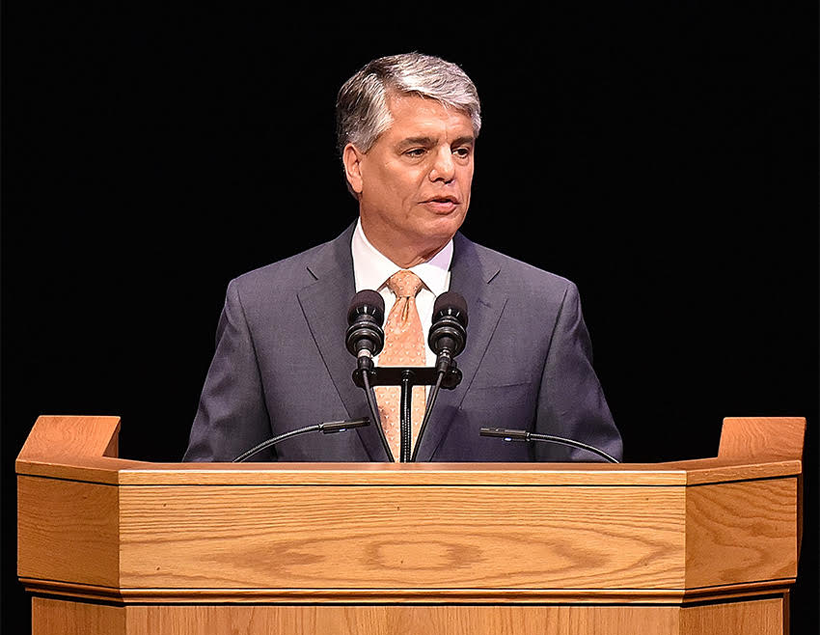Read our timeline surrounding the events of the case here.
A lawsuit facing the University and UT President Gregory Fenves argues that Fenves circumvented due process in suspending a student accused of rape in a Title IX case.
The case is one of many in recent years that addresses due process and Title IX sexual assault cases. Last Thursday, Secretary of Education Betsy DeVos announced plans to overhaul Title IX guidelines for sexual assault in an effort to protect both survivors and the accused.
In this case, the University hearing did not find enough evidence to punish the male student. However, when the case was appealed, Fenves determined the female student was incapacitated and therefore unable to give consent.
“Under University rules, someone who is intoxicated cannot give consent to sexual activity because they are incapacitated,” Fenves wrote in his seven-page determination.
Fenves suspended the student for five semesters, starting the summer of 2017. The student then filed a lawsuit under the name “John Doe.” Representing John in the lawsuit is Austin attorney Brian Roark, who said the lawsuit is about due process and whether or not UT’s disciplinary process adheres to its requirements.
“It’s unfair to have a hearing process that is supposed to provide due process but still allows for the most political figure at the University to change everything on a whim,” Roark said. “(The hearing is) just a facade.”
Roark also argued that Fenves misinterpreted the school’s sexual assault policy and its definition of incapacitation.
“It’s also unfair to have a definition of consent that doesn’t make any sense, that no one can understand and that the University cannot explain properly,” Roark said. “Fenves came up with his own definition.”
Linda Millstone, interim Title IX coordinator, said she believes her office follows due process.
“Due process means that it needs to be fair,” Millstone said. “We think our process is fair. We follow due process.”
Roark also claims Fenves was biased in his decision. The survivor’s father is a donor who gave “significant sums” to the University within a month of the initial complaint, according to the lawsuit. The lawsuit also claims Fenves has a reputational and political interest in siding with the survivor rather than the accused.
The lawsuit details the night when John and “Jane Roe” had sex after Jane’s sorority formal in April 2016. Jane agreed to have sex, but several days after the incident filed a complaint with UT’s Title IX Office because she believed she was too intoxicated to give consent.
The complaint led to an investigation, where Title IX investigators found evidence that Jane was “incapacitated” the night of the incident and therefore unable to give consent.
John then requested a University hearing, where the hearing officer, a UT professor, decided the evidence did not show Jane was incapacitated, meaning Jane was able to give consent and John should not be punished.
Jane then appealed the University hearing’s decision, which sent the case to Fenves’ office. Millstone said the president’s desk is the last place a case can land. Both John and Jane provided written arguments to Fenves, who in turn reviewed the case and suspended John, overruling the University hearing officer’s decision.
UT and Fenves are being represented by Austin attorney Sean Flammer. In a statement released Aug. 8, University spokesman J.B. Bird said the University usually does not comment on pending litigation. He said the University had no further comment at this time.
There are currently no court dates scheduled for the case, but U.S. Judge Sam Sparks said in a preliminary hearing on Aug. 11 that he will find time for a more thorough hearing before the start of the spring semester, according to the Austin American-Statesman.





















